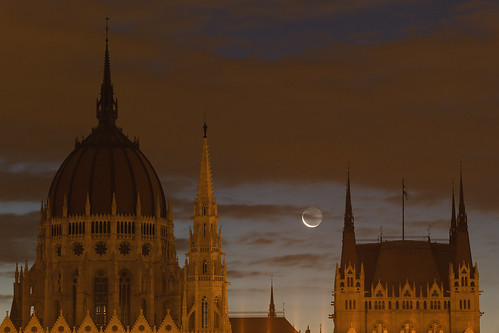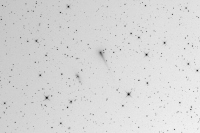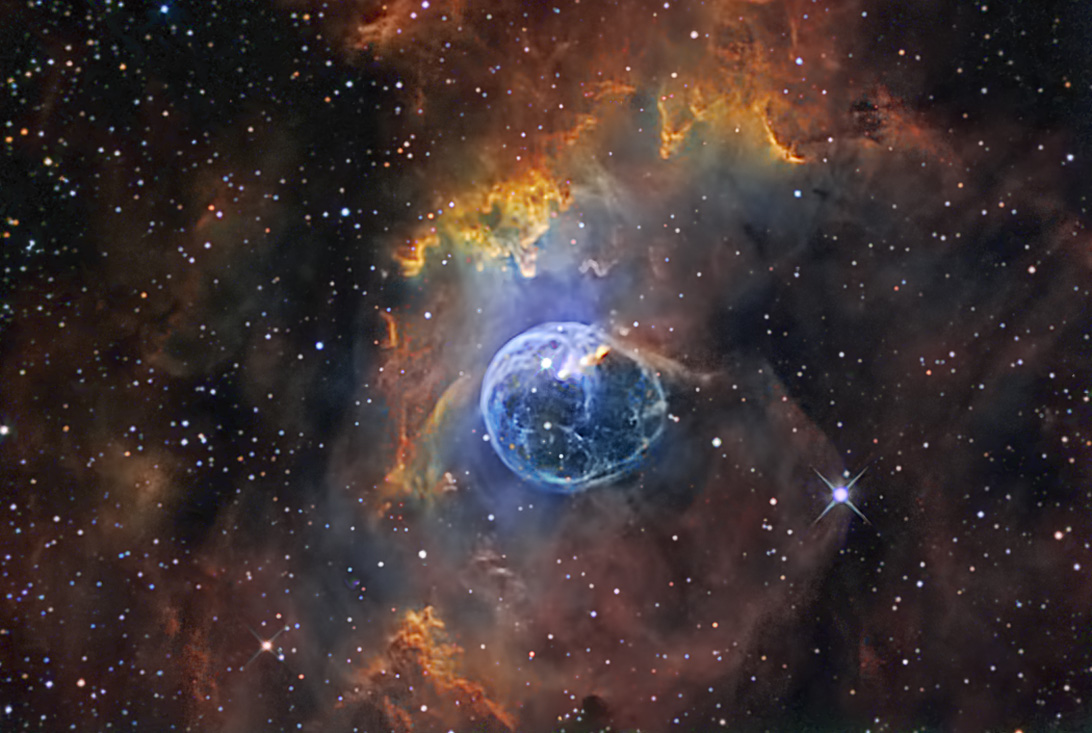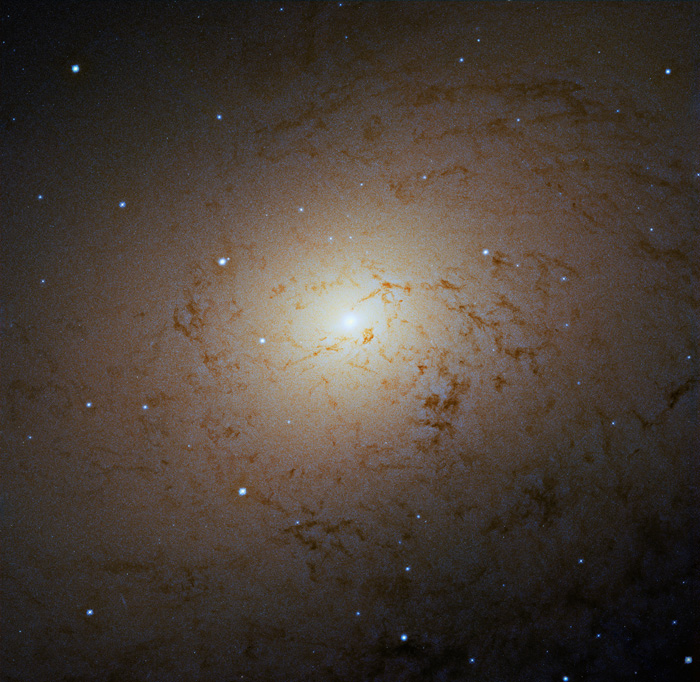Submissions: 2013 October
-
Turnit Tops
- Ensign
- Posts: 38
- Joined: Thu Jun 27, 2013 8:26 am
Submissions: 2013 October
__________________________________________________________________________________________________
Please post your images here.
Please see this thread before posting images; posting images demonstrates your agreement with
the possible uses for your image.
If hotlinking to an image, please ensure it is under 400K.
Hotlinks to images over 400K slow down the thread too much and will be disabled.
Thank you!
_________________________________________________________________________________________________
<- Previous submissions
[c]«« Discuss Anything in Astronomy «» Visit The Asterisk Main Page «» See Introductory Astonomy Lectures »»
«« Introduce Yourself «» Please Read the Rules »»[/c]
http://www.starkeeper.it/img/CassioCefeo_High.jpg
Leonardo Orazi
wide field image of area between Cassiopeia and Cepheus. http://www.starkeeper.it/CassioCefeo.htm
An annotated version at this link (ready for mouse over):
http://www.starkeeper.it/CassioCefeo_Annotated.htm
This a 43 sub of 5 min taken with a Full Frame Modified DSLR.
Don Waid
NGC 7635 image for APOD. It is a narrowband image with RGB stars overlaid.
Small with description:
http://www.waid-observatory.com/ngc7635 ... 04-NB.html
Full resolution: (1092 Pixels)
http://www.waid-observatory.com/ngc7635 ... 92-NB.html
Image acquired: Aug. 31 Sept. 1,3 % 4, 2013
Location: Denton, TX
http://lascaux.asu.cas.cz/m/apod-c/trace.jpg http://lascaux.asu.cas.cz/m/apod-c/venus.jpg Martin Jelínek
images I obtained last two nights while observing at the Nordic Optical Telescope at Roque de los Muchachos, La Palma, Spain.
One is a satelite trace nicely caught across the Milky Way, I was doing a time lapse and it was a serendipitious catch (27/ix/2013 20:48UT).
The other is the Milky Way and Venus at the beginning of the night (red trace can still be seen on the horizon), with Venus's light bouncing from the surface of the Atlantic Ocean (this was 28/ix/2013, 19:20UT).
I use to do images for pure pleasure of having a nice picture, and did not really think of publishing them anywhere, but since I have seen reactions of people to which I have shown them, I gained confidence to try and submit. Still I have a feeling you might have loads of similar stuff.
Robert Gendler
This is a multi-panel mosaic of the core of M31 I assembled
from R and B-band data downloaded from the HLA.
Images of the Core
http://www.robgendlerastropics.com/M31-Core-HST.html
Close up of the Double Nucleus
http://www.robgendlerastropics.com/M31- ... cleus.html
Write up on the Double Nucleus of M31 and its possible origin
http://www.robgendlerastropics.com/M31Coretext.html
Albert Barr
Here's a 10 hour LRGB of the Pacman imaged in Mayhill NM over the past two nights.
David Finlay
@clearskiestv
https://twitter.com/ClearSkiesTV
attached is my image of asteroid 2012 DA14 taken during closest approach on Feb 16th. It is seen passing by IC2602, the Southern Pleiades. It was taken from a small country town called Jamberoo, south of Wollongong, NSW, Australia.
I haven't seen many photos of DA14, at least none where you can distinguish it from other points of light in the sky, but on this occasion a 90 second exposure shows its apparent motion against the stars. I had thought every person with a telescope would have been up that night taking images of the asteroid, however this image appears to be quite unique.
It is for this reason that I would like to submit the photo to APOD.
It was frightening to watch how quickly this object was moving; knowing the whole time the motion and brightness were due to its size, speed and closeness to our precious planet. While I like chasing unique astronomical events, I'd prefer never to have to see another asteroid this close again!
If you use this image could you please give me credit as the photographer and a link to my twitter account. Thanks!
Please post your images here.
Please see this thread before posting images; posting images demonstrates your agreement with
the possible uses for your image.
If hotlinking to an image, please ensure it is under 400K.
Hotlinks to images over 400K slow down the thread too much and will be disabled.
Thank you!
_________________________________________________________________________________________________
<- Previous submissions
[c]«« Discuss Anything in Astronomy «» Visit The Asterisk Main Page «» See Introductory Astonomy Lectures »»
«« Introduce Yourself «» Please Read the Rules »»[/c]
http://www.starkeeper.it/img/CassioCefeo_High.jpg
Leonardo Orazi
wide field image of area between Cassiopeia and Cepheus. http://www.starkeeper.it/CassioCefeo.htm
An annotated version at this link (ready for mouse over):
http://www.starkeeper.it/CassioCefeo_Annotated.htm
This a 43 sub of 5 min taken with a Full Frame Modified DSLR.
Don Waid
NGC 7635 image for APOD. It is a narrowband image with RGB stars overlaid.
Small with description:
http://www.waid-observatory.com/ngc7635 ... 04-NB.html
Full resolution: (1092 Pixels)
http://www.waid-observatory.com/ngc7635 ... 92-NB.html
Image acquired: Aug. 31 Sept. 1,3 % 4, 2013
Location: Denton, TX
http://lascaux.asu.cas.cz/m/apod-c/trace.jpg http://lascaux.asu.cas.cz/m/apod-c/venus.jpg Martin Jelínek
images I obtained last two nights while observing at the Nordic Optical Telescope at Roque de los Muchachos, La Palma, Spain.
One is a satelite trace nicely caught across the Milky Way, I was doing a time lapse and it was a serendipitious catch (27/ix/2013 20:48UT).
The other is the Milky Way and Venus at the beginning of the night (red trace can still be seen on the horizon), with Venus's light bouncing from the surface of the Atlantic Ocean (this was 28/ix/2013, 19:20UT).
I use to do images for pure pleasure of having a nice picture, and did not really think of publishing them anywhere, but since I have seen reactions of people to which I have shown them, I gained confidence to try and submit. Still I have a feeling you might have loads of similar stuff.
Robert Gendler
This is a multi-panel mosaic of the core of M31 I assembled
from R and B-band data downloaded from the HLA.
Images of the Core
http://www.robgendlerastropics.com/M31-Core-HST.html
Close up of the Double Nucleus
http://www.robgendlerastropics.com/M31- ... cleus.html
Write up on the Double Nucleus of M31 and its possible origin
http://www.robgendlerastropics.com/M31Coretext.html
Albert Barr
Here's a 10 hour LRGB of the Pacman imaged in Mayhill NM over the past two nights.
David Finlay
@clearskiestv
https://twitter.com/ClearSkiesTV
attached is my image of asteroid 2012 DA14 taken during closest approach on Feb 16th. It is seen passing by IC2602, the Southern Pleiades. It was taken from a small country town called Jamberoo, south of Wollongong, NSW, Australia.
I haven't seen many photos of DA14, at least none where you can distinguish it from other points of light in the sky, but on this occasion a 90 second exposure shows its apparent motion against the stars. I had thought every person with a telescope would have been up that night taking images of the asteroid, however this image appears to be quite unique.
It is for this reason that I would like to submit the photo to APOD.
It was frightening to watch how quickly this object was moving; knowing the whole time the motion and brightness were due to its size, speed and closeness to our precious planet. While I like chasing unique astronomical events, I'd prefer never to have to see another asteroid this close again!
If you use this image could you please give me credit as the photographer and a link to my twitter account. Thanks!
Re: Submissions: 2013 September
From the Wall to the Pelican in Hubble palette
Shot in the Netherlands with a C11 Hyperstar.
High-res
Shot in the Netherlands with a C11 Hyperstar.
High-res
Re: Submissions: 2013 September
clouds in the east at sunset
the harvest moon
Last edited by Rothkko on Wed Oct 02, 2013 6:19 am, edited 1 time in total.
-
dakotalapse
- Ensign
- Posts: 16
- Joined: Sun Jun 02, 2013 7:48 pm
Re: Submissions: 2013 September
Aurora in central South Dakota on 10-1-13 http://www.facebook.com/dakotalapse
Re: Submissions: 2013 September
el beso. iridiscence
-
vanamonde81
- Science Officer
- Posts: 143
- Joined: Fri Apr 12, 2013 7:46 am
Re: Submissions: 2013 September
Hi,
On Thursday early morning I observed and photographed the rising waning crescent Moon from Budapest, Hungary. Standing at the bank of river Danube the towers of Hungarian Parliament acted as spectacular foreground of the scene. When the picture was taken the age of the Moon was 44 hours and 51 minutes before New Moon phase.
Crescent Moonrise over Budapest
Copyright: György Soponyai

http://www.flickr.com/photos/vanamonde81/10064534823/
Photo details: 2013.10.03. Budapest, Hungary
Canon EOS 5D Mark II + Canon EF 70-200/4 @126mm, 2.5sec, F4.5, ISO 800
On Thursday early morning I observed and photographed the rising waning crescent Moon from Budapest, Hungary. Standing at the bank of river Danube the towers of Hungarian Parliament acted as spectacular foreground of the scene. When the picture was taken the age of the Moon was 44 hours and 51 minutes before New Moon phase.
Crescent Moonrise over Budapest
Copyright: György Soponyai

http://www.flickr.com/photos/vanamonde81/10064534823/
Photo details: 2013.10.03. Budapest, Hungary
Canon EOS 5D Mark II + Canon EF 70-200/4 @126mm, 2.5sec, F4.5, ISO 800
Re: Submissions: 2013 October
ISON (C/2012 S1) 2013-10-03 03:13UT meets NGC29xx galaxies
http://blog.astrofotky.cz/pavelpech
Copyright: Pavel Pech

whole big FOV:
http://www.astro.cz/galerie/d/62312-1/I ... -final.jpg
http://blog.astrofotky.cz/pavelpech
Copyright: Pavel Pech

whole big FOV:
http://www.astro.cz/galerie/d/62312-1/I ... -final.jpg
-
justinngphoto
- Asternaut
- Posts: 8
- Joined: Wed Sep 04, 2013 1:53 pm
Re: Submissions: 2013 October
Milkyway at Dusk
http://www.justinngphoto.com
Copyright: Justin Ng At one glance, one may think that this image is photoshopped or its a composite because it's simply impossible to see milky way galaxy at dusk. But what you're really seeing here is a single exposure shot of a rare phenomenon, known as Zodiacal Light (a.k.a. False Dusk), that I have captured during my recent trip to Mount Bromo in the Southern Hemisphere. Zodiacal light is best seen during Spring and Autumn and I chose to visit Mt Bromo a few days after Autumnal Equinox as I hope to capture the Zodiacal light along with the 3 planets, 3 volcanoes and a milky way galaxy. If I had visited Mount Bromo during Vernal Equinox, I will not be able to capture this rare phenomenon with the cones of the 3 volcanoes because the Zodiacal light would have appear before dawn, in the East.
This image was captured when the sun was around 15 degrees below horizon and the sky was reaching its astronomical darkness condition. That's why we were able to see the milkyway galaxy and the Zodiacal light also created a false dusk impression. During normal day, you will not be able to see the sunset colors at this time because the sky would have been completely dark! Zodiacal light appears as a faint light in this image coming from Mount Batok pointing towards the Milky Way Galaxy but it's actually pointing towards the pathway traveled by the Sun and Moon as they journey across our sky.
Zodiacal light is actually sunlight reflecting off dust grains that circle the sun in the inner solar system. These grains are thought to be left over from the process that created our Earth and the other planets of our solar system 4.5 billion years ago.
I also did a 6 hours timelapse for this amazing phenomenon.
http://www.justinngphoto.com
Copyright: Justin Ng At one glance, one may think that this image is photoshopped or its a composite because it's simply impossible to see milky way galaxy at dusk. But what you're really seeing here is a single exposure shot of a rare phenomenon, known as Zodiacal Light (a.k.a. False Dusk), that I have captured during my recent trip to Mount Bromo in the Southern Hemisphere. Zodiacal light is best seen during Spring and Autumn and I chose to visit Mt Bromo a few days after Autumnal Equinox as I hope to capture the Zodiacal light along with the 3 planets, 3 volcanoes and a milky way galaxy. If I had visited Mount Bromo during Vernal Equinox, I will not be able to capture this rare phenomenon with the cones of the 3 volcanoes because the Zodiacal light would have appear before dawn, in the East.
This image was captured when the sun was around 15 degrees below horizon and the sky was reaching its astronomical darkness condition. That's why we were able to see the milkyway galaxy and the Zodiacal light also created a false dusk impression. During normal day, you will not be able to see the sunset colors at this time because the sky would have been completely dark! Zodiacal light appears as a faint light in this image coming from Mount Batok pointing towards the Milky Way Galaxy but it's actually pointing towards the pathway traveled by the Sun and Moon as they journey across our sky.
Zodiacal light is actually sunlight reflecting off dust grains that circle the sun in the inner solar system. These grains are thought to be left over from the process that created our Earth and the other planets of our solar system 4.5 billion years ago.
I also did a 6 hours timelapse for this amazing phenomenon.
-
PepeChambo
- Ensign
- Posts: 38
- Joined: Thu Mar 28, 2013 8:19 am
- Location: Vallés, Valencia (Spain)
- Contact:
Inexhaustible Lemmon
Title:
Inexhaustible Lemmon
Object/Date:
C/2012 F6 Lemmon @ 2013-08-10
Tech data:
GSO 8" f/4 Refractor + Canon EOS 350D camera (4×180 sec. at ISO 1600)
Description:
The comet C/2012 F6 Lemmon imaged on August 10, 2013. In spite of have moved away of Sun until 2,4 A.U. and shine with 10,5 magnitude, the comet still shows a magnificent appearance, More over, the closeness of Earth to its orbit plane do possible to see in this image a anti-tail about 0.5º long.
Post link:
http://cometografia.es/2013/08/incombustible-lemmon/
Inexhaustible Lemmon
Object/Date:
C/2012 F6 Lemmon @ 2013-08-10
Tech data:
GSO 8" f/4 Refractor + Canon EOS 350D camera (4×180 sec. at ISO 1600)
Description:
The comet C/2012 F6 Lemmon imaged on August 10, 2013. In spite of have moved away of Sun until 2,4 A.U. and shine with 10,5 magnitude, the comet still shows a magnificent appearance, More over, the closeness of Earth to its orbit plane do possible to see in this image a anti-tail about 0.5º long.
Post link:
http://cometografia.es/2013/08/incombustible-lemmon/
-
rcolombari
- Ensign
- Posts: 43
- Joined: Fri May 24, 2013 11:56 am
M16/M17 in wide field
-
IanP
- Science Officer
- Posts: 135
- Joined: Fri Jan 06, 2012 5:21 am
- Location: Perth, Western Australia
- Contact:
Antares and Corona Australis
Antares is slowly going away, so here is one of the last shots this season of the wide-field between Antares and Corona Australis (just fitting into the frame).
-
Efrain Morales
- Commander
- Posts: 510
- Joined: Fri Oct 22, 2010 8:15 pm
- AKA: Jaicoa
- Location: Aguadilla, Puerto Rico
- Contact:
Cmet ISON C/2012 S1-Oct.3rd
Comet ISON C/2012 S1 on October 3rd under above average conditions. Getting more impressive as time progresses. 7 x 4min. exp. (28min total)Equipment info on image.
NGC6905 Blue Flash Nebula
A little planetary nebula in Delphinus.
August 28th/31th
Location: San Romualdo - Ravenna (Italy)
LX200 12"GPS with Starizona reducer/coma corrector F/7.5
CCD QSI 540wsi cooled -20
RGB Astrodon Gen-II True-Balance I-series filters
Autoguide with Magzero MZ5-M and PHDguiding on ETX105
Ha-OIII-RGB
H-alpha Astrodon 5nm 5h45', OIII Astrodon 5nm 5h10', R 40x3', G 56x3', 79x3'
Acquired with: MaximDL5 - Dark, Bias and Flat subtract
Processed with: MaximDL5, Astroart4, StarTools1.3, PhotoshopCS2 and Paint Shop ProX4
Best regards,
Cristina Cellini
http://www.mazzottiefigli.com/cfm2004/a ... c6905.html
August 28th/31th
Location: San Romualdo - Ravenna (Italy)
LX200 12"GPS with Starizona reducer/coma corrector F/7.5
CCD QSI 540wsi cooled -20
RGB Astrodon Gen-II True-Balance I-series filters
Autoguide with Magzero MZ5-M and PHDguiding on ETX105
Ha-OIII-RGB
H-alpha Astrodon 5nm 5h45', OIII Astrodon 5nm 5h10', R 40x3', G 56x3', 79x3'
Acquired with: MaximDL5 - Dark, Bias and Flat subtract
Processed with: MaximDL5, Astroart4, StarTools1.3, PhotoshopCS2 and Paint Shop ProX4
Best regards,
Cristina Cellini
http://www.mazzottiefigli.com/cfm2004/a ... c6905.html
Re: Submissions: 2013 October
Tuscan sky at a UNESCO World Heritage Site
Copyrights: Yuri Beletsky NGC 134 and 131 in Sculptor
Copyrights: Martin Pugh Comet & galaxy meet - Sep 29th
Copyrights: Damian Peach SpaceX Falcon rocket launch - 9/29/2013
Copyrights: Dave Kodama
More about: http://www.astrocamera.net/2013/0929/index.htm NASA Space Telescopes Find Patchy Clouds on Exotic World
Image credits: NASA/JPL-Caltech/MIT
More about: http://www.jpl.nasa.gov/news/news.php?release=2013-296 Comet C/2012 S1 (ISON) - October 01, 2013
Copyrights: Ernesto Guido, Nick Howes & Martino Nicolini
Copyrights: Yuri Beletsky NGC 134 and 131 in Sculptor
Copyrights: Martin Pugh Comet & galaxy meet - Sep 29th
Copyrights: Damian Peach SpaceX Falcon rocket launch - 9/29/2013
Copyrights: Dave Kodama
More about: http://www.astrocamera.net/2013/0929/index.htm NASA Space Telescopes Find Patchy Clouds on Exotic World
Image credits: NASA/JPL-Caltech/MIT
More about: http://www.jpl.nasa.gov/news/news.php?release=2013-296 Comet C/2012 S1 (ISON) - October 01, 2013
Copyrights: Ernesto Guido, Nick Howes & Martino Nicolini
Re: Submissions: 2013 October
22 and 46 degre Sun halos
Copyrights: Jose Agustoni ISS
Copyrights: Hervé Douris Astronomers Find Distant Galaxy Powered by Primordial Cosmic Fuel
Credit: MPIA (G. STINSON / A. V. MACCIÒ)
More about: http://www.keckobservatory.org/recent/e ... osmic_fuel Milky Way
Copyrights: Michael J. West Cederblad 214
Copyrights: Jeffrey Jongmans
Larger version: http://jeffreyjongmans.nl/images/galler ... hst_v1.jpg
Copyrights: Jose Agustoni ISS
Copyrights: Hervé Douris Astronomers Find Distant Galaxy Powered by Primordial Cosmic Fuel
Credit: MPIA (G. STINSON / A. V. MACCIÒ)
More about: http://www.keckobservatory.org/recent/e ... osmic_fuel Milky Way
Copyrights: Michael J. West Cederblad 214
Copyrights: Jeffrey Jongmans
Larger version: http://jeffreyjongmans.nl/images/galler ... hst_v1.jpg
-
astrofotografen.se
- Ensign
- Posts: 34
- Joined: Thu Apr 11, 2013 6:45 am
Re: Submissions: 2013 October
-
Marco Angelini
- Ensign
- Posts: 40
- Joined: Sat Jan 07, 2012 12:44 am
Re: Submissions: 2013 October
NGC 7380 + Sh2-142 - The Wizard Nebula in Cepheus
Hybrid Combination of Narrow Band and Natural Colors Images of the complex Sh2-142 - also known as "The Wizard Nebula", sourrounding the young open cluster NGC 7380 in Cepheus.
Authors: M.Angelini-F.Antonucci-F.Tagliani ADARA ASTROBRALLO
http://www.astrobrallo.com
Full Size: http://www.astrobrallo.com/gallery/var/ ... 1380242024
Image details: http://www.astrobrallo.com/gallery/inde ... NGC-7380-W
Hybrid Combination of Narrow Band and Natural Colors Images of the complex Sh2-142 - also known as "The Wizard Nebula", sourrounding the young open cluster NGC 7380 in Cepheus.
Authors: M.Angelini-F.Antonucci-F.Tagliani ADARA ASTROBRALLO
http://www.astrobrallo.com
Full Size: http://www.astrobrallo.com/gallery/var/ ... 1380242024
Image details: http://www.astrobrallo.com/gallery/inde ... NGC-7380-W
-
russelleking
- Ensign
- Posts: 54
- Joined: Sun Jun 05, 2011 2:03 am
Re: Submissions: 2013 October
M31. The Andromeda Galaxy
http://rddnj.com/JimmysM31M32M110.html
Copyright: Jimmy Mack
A member of the "Willingboro Astronomical Society" http://wasociety.us/
Date: 9/24/2013.
Time: 10:14PM.
Mount: Celestron CG5GT GEM.
Guide camera: LodeStar.
Guide SW: PHD.
Guide scope: 66mm WO APO.
Camera: Gary Honis modified Canon EOS T3i.
Scope: Astro Tech AT111 f7 with Field flatener.
processed 10 images 32 mins of exposure plus darks in DeepskyStacker.
Adjusted and resized in PhotoShop.
http://rddnj.com/JimmysM31M32M110.html
Copyright: Jimmy Mack
A member of the "Willingboro Astronomical Society" http://wasociety.us/
Date: 9/24/2013.
Time: 10:14PM.
Mount: Celestron CG5GT GEM.
Guide camera: LodeStar.
Guide SW: PHD.
Guide scope: 66mm WO APO.
Camera: Gary Honis modified Canon EOS T3i.
Scope: Astro Tech AT111 f7 with Field flatener.
processed 10 images 32 mins of exposure plus darks in DeepskyStacker.
Adjusted and resized in PhotoShop.
-
russelleking
- Ensign
- Posts: 54
- Joined: Sun Jun 05, 2011 2:03 am
Re: Submissions: 2013 October
NGC 281, "The Pacman Nebula".
http://rddnj.com/JimmysPacmanNebula.html
Copyright: Jimmy Mack
A member of the "Willingboro Astronomical Society" http://wasociety.us/
Date: 9/14/2013.
Time: 11:37 PM.
Camera: Gary Honis mocified Canon EOS Rebel T3i.
Mount: Astro Physics AP900 GEM
Imaging scope: Astro-Tech AT111 Triplet Apo f/7 w/field flattener
Guide scope: William Optics Zenithstar II 80mm ED doublet blue f/6.8
Guide Camera: Starlight Xpress Lodestar Monochrome Autoguider
Guiding software: PHD
Exposure Time: 480 Seconds.
ISO: 800.
http://rddnj.com/JimmysPacmanNebula.html
Copyright: Jimmy Mack
A member of the "Willingboro Astronomical Society" http://wasociety.us/
Date: 9/14/2013.
Time: 11:37 PM.
Camera: Gary Honis mocified Canon EOS Rebel T3i.
Mount: Astro Physics AP900 GEM
Imaging scope: Astro-Tech AT111 Triplet Apo f/7 w/field flattener
Guide scope: William Optics Zenithstar II 80mm ED doublet blue f/6.8
Guide Camera: Starlight Xpress Lodestar Monochrome Autoguider
Guiding software: PHD
Exposure Time: 480 Seconds.
ISO: 800.
-
Marco Angelini
- Ensign
- Posts: 40
- Joined: Sat Jan 07, 2012 12:44 am
Re: Submissions: 2013 October
NGC 7000: The Cygnus Wall - Narrow Band SII:Ha:OIII
Narrow-Band image of the southern part of NGC7000, the "North America Nebula". The brightest structure shown in the left of the picture is also called the "Cygnus Wall".
Authors: F.Antnucci-M.Angelini-F.Tagliani ADARA ASTROBRALLO
http://www.astrobrallo.com
Full Res: http://www.astrobrallo.com/gallery/var/ ... 1380242024
Image Details: http://www.astrobrallo.com/gallery/inde ... C7000-Wall
NGC 7000: The Cygnus Wall - Hydrogen Alpha
B/W image of the above image taken with an Hydrogen Alpha Narrow Band Filter of 7 nanometers FWHM
Authors: F.Antnucci-M.Angelini-F.Tagliani ADARA ASTROBRALLO
http://www.astrobrallo.com
Full Res: http://www.astrobrallo.com/gallery/var/ ... 1379761197
Image Details: http://www.astrobrallo.com/gallery/inde ... 00-Wall-Ha
Narrow-Band image of the southern part of NGC7000, the "North America Nebula". The brightest structure shown in the left of the picture is also called the "Cygnus Wall".
Authors: F.Antnucci-M.Angelini-F.Tagliani ADARA ASTROBRALLO
http://www.astrobrallo.com
Full Res: http://www.astrobrallo.com/gallery/var/ ... 1380242024
Image Details: http://www.astrobrallo.com/gallery/inde ... C7000-Wall
NGC 7000: The Cygnus Wall - Hydrogen Alpha
B/W image of the above image taken with an Hydrogen Alpha Narrow Band Filter of 7 nanometers FWHM
Authors: F.Antnucci-M.Angelini-F.Tagliani ADARA ASTROBRALLO
http://www.astrobrallo.com
Full Res: http://www.astrobrallo.com/gallery/var/ ... 1379761197
Image Details: http://www.astrobrallo.com/gallery/inde ... 00-Wall-Ha
-
Efrain Morales
- Commander
- Posts: 510
- Joined: Fri Oct 22, 2010 8:15 pm
- AKA: Jaicoa
- Location: Aguadilla, Puerto Rico
- Contact:
Comet ISON C/2012 S1-Oct.4th
Comet ISON C/2012 S1 On October 4th, 09:00-09:24ut. (6x4min. Exp.). Above average conditions. (not croped), Equipment info on image.
Re: APOD ©Strips
Yes, this is exactly where you want to be! Nice pic! Welcome aboard and thanks for sharing!Maurizio wrote:Hello I am an Italian photographer, and 'the first time in this forum, I would like to participate in apod, and' this is the right situation?
Know the quiet place within your heart and touch the rainbow of possibility; be
alive to the gentle breeze of communication, and please stop being such a jerk. — Garrison Keillor
alive to the gentle breeze of communication, and please stop being such a jerk. — Garrison Keillor
-
davidpearson
- Ensign
- Posts: 14
- Joined: Sat Apr 21, 2012 1:51 pm
Dust Bowl Perseus
Here's my imaging project from this past week at the 2013 Okie-Tex star party. This is a 6-panel mosaic of the Perseus Molecular Cloud that spans from IC348 on the left, down past NGC 1333 on the right. I thought it was appropriate to capture such a dusty field from a location that was the epicenter of the Dust Bowl era in the 1930's in the United States.
Larger at: http://davidpearson-photo.smugmug.com/A ... -v3-X3.jpg
Larger at: http://davidpearson-photo.smugmug.com/A ... -v3-X3.jpg
Re: Submissions: 2013 October
My latest image, The Trifid Nebula.
Telescope: FSQ106EDXIII
Camera: SBIG STT-8300M
Composition: LRGB (152:45:40:40)
Captured: 25, 27, and 29 September 2013, Canberra Australia

The Trifid Nebula (NGC6514) by SpaceN00b, on Flickr
Chris Marklew
Telescope: FSQ106EDXIII
Camera: SBIG STT-8300M
Composition: LRGB (152:45:40:40)
Captured: 25, 27, and 29 September 2013, Canberra Australia

The Trifid Nebula (NGC6514) by SpaceN00b, on Flickr
Chris Marklew













